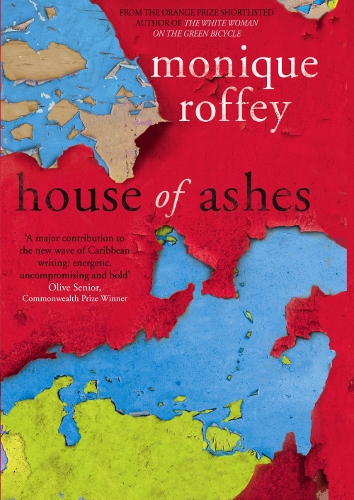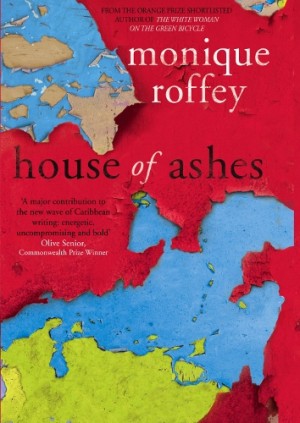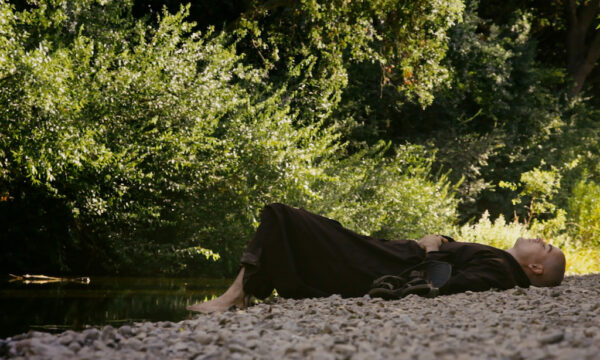House of Ashes by Monique Roffey

Author Monique Roffey is no stranger to praise. Archipelago earned her the 2013 OCM Bocas Prize for Caribbean Literature and The White Woman on the Green Bicycle was shortlisted for the Orange Prize. House of Ashes, her fourth work of fiction, is likely to garner  admiration for addressing social, political and environmental issues affecting the Caribbean, but the bold narrative suffers from the vagueness Roffey applies to her antagonists. Inspired by real-life events in Trinidad during 1990, this tale of a failed coup d’état resorts to innuendo, reportedly to save Roffey from following in the fatwa-attracting footsteps of Salmon Rushdie.
admiration for addressing social, political and environmental issues affecting the Caribbean, but the bold narrative suffers from the vagueness Roffey applies to her antagonists. Inspired by real-life events in Trinidad during 1990, this tale of a failed coup d’état resorts to innuendo, reportedly to save Roffey from following in the fatwa-attracting footsteps of Salmon Rushdie.
A lacklustre introduction to the rebels quickly evolves into a gripping exposé of power, politics, religious fundamentalism and social inequality. Set in the fictional Caribbean island of Sans Amen, The House of Power, in the City of Silk, is stormed by a group of armed young men (“badjohns”), determined to overthrow a corrupt government and free the island’s black people from oppression.
The orchestrator of this rebellion is “The Leader” a charismatic and deeply religious father figure whose background is unclear. He is trusted implicitly by his followers – including Ashes, a studious, family man overshadowed by the courage and exploits of a long-dead older brother. It is through this placid character that we enter a world of bloody violence and corruption. Ashes’ account alternates with that of two other characters throughout the novel: Aspasia Garland, a mother and government minister overcome with empathy for her captors, and teenager Joseph “Breeze” Green, a fellow rebel who is startled to find his beliefs challenged during a six-day long siege.
Roffey’s use of patois helps to anchor the events in their location, which could otherwise be mistaken for any government building in any global city. Her portrayal of the standoff is shockingly uncompromising and the reader, too, becomes hostage to the tension, stench and fear as the violence escalates. The author successfully applies the same brutal honesty to her depiction of female captives and it is through these characters, rather than the audacious act of rebellion, that the fiery, courageous spirit of the West Indies comes alive. Garland risks death to question and understand the young men pointing their guns towards her, while Mrs Gonzales, cleaner of The House, heaps shame upon the “badjohns” with fierce indignation: “What de ass wrong with you, eh? You mash up mih carpet.”
The underlying sub-texts of House of Ashes are also delivered with unapologetic purpose, particularly Roffey’s analysis of the problems affecting the Caribbean in the post-colonial era and the plight of dispossessed youth. This, and the morphing bonds between the rebels, as well as their protracted experience as captors, slowly transforms our initial contempt towards these “badjohns” into a lukewarm compassion.
House of Ashes is a brave political thriller, for which Roffey has risked much to deliver. In walking a fine line between fact and fiction, some of the narrative is occasionally diluted but gutsy characters and unflinching action make this a rewarding read.
Niki Shakallis
House of Ashes is published by Simon and Schuster at the hardback price of £14.99. For further information visit here.

























Facebook
Twitter
Instagram
YouTube
RSS